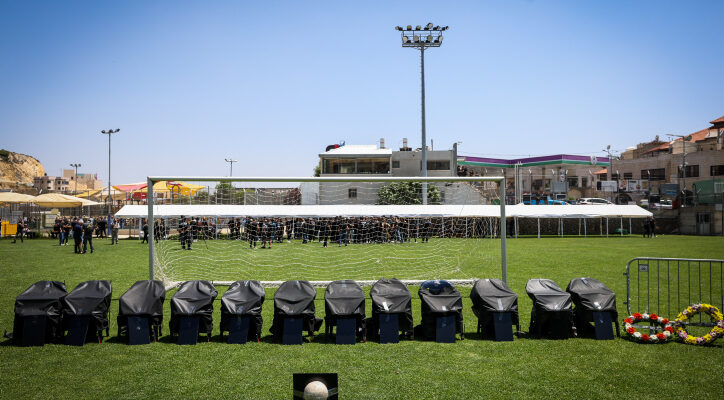Lt. Gen. Mark Hertling says Hezbollah, emboldened by the IDF’s restrained response to previous attacks, wanted to kill civilians to “taunt” the Jewish state.
By World Israel News Staff
Hezbollah intentionally targeted civilians in Saturday’s Majdal Shams attack in order to “taunt” Israel, a prominent retired U.S. Army General said on Monday.
Emboldened by the IDF’s restrained response to months of rocket, missile and drone attacks, Hezbollah felt that it could attack civilians without a strong response from the IDF, Lt. Gen. Mark Hertling told CNN.
The military analyst, who once served as the Commanding General of the U.S. Army in Europe, rejected claims that Hezbollah did not purposely kill civilians and that the terror group isn’t seeking a larger conflict with Israel.
“It’s pretty apparent that the rockets came out of Lebanese territory, that they bear the markings of Iranian rockets and missiles,” Hertling told CNN.
He added that he believes it is clear that the deadly strike on Majdal Shams, which killed 12 children and teens, was a form of “taunting by Hezbollah towards Israel.”
Hertling said that he understood the IDF’s strategy of focusing on Gaza, rather than intensifying efforts to combat Hezbollah in the north. But, he said, Saturday’s bombing means that Israel will have to strongly respond to Hezbollah, despite the ongoing fighting in the coastal enclave.
“I’m not talking about the politics of this, but from a military perspective,” he told CNN. “A military commander never wants to open a second front with his enemy.”
“But when you have continuous attacks on the territory of Israel by Hezbollah, another terrorist organization, another organization that has supported Iran, you have to provide a proportional response.”
The biggest challenge facing Israel right now, he said, is deciding on an appropriate response that won’t see the IDF bogged down for the long term in Lebanon.
“As we’ve all known, those that have studied the history of Israel’s wars into Lebanon in 1982 and 2004, those have been somewhat disastrous for the IDF because they get caught up in a quagmire inside of Lebanon,” Hertling said.
“You’re talking about dealing not only with terrorists but with a nation-state, so it’s very difficult for Israel to counter this kind of thing from a terrorist organization that receives the blessing from the Iranian government to be in [Lebanese] territory.”





